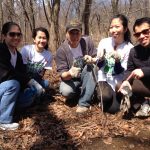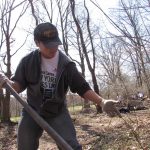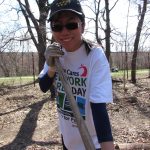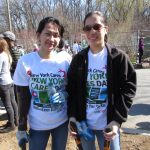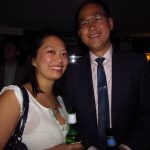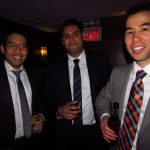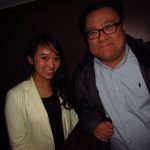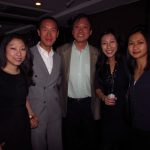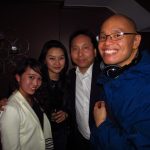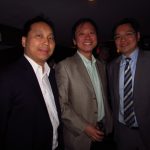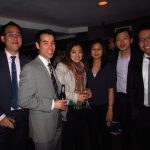From the Mayor’s Office to Combat Domestic Violence: Upcoming Manhattan Family Justice Center Trainings
Upcoming Manhattan Family Justice Center Trainings:
Ø Spotting Consumer Debt Issues and Referring Survivors to Available Resources for Help
Friday, April 25th 3-5 pm
Facilitated by Feerick Center for Social Justice, Fordham Law School
- Overview of consumer debt crisis in New York City
- Impact of consumer debt on survivors
- Importance of building financial self-sufficiency
- Safety implications of credit reporting and consumer debt advocacy
- Screening for consumer credit and consumer debt issues
- Overview of consumer debt resources for domestic violence survivors
Ø How to File Family Offense Petitions Online
Monday, April 28th 12-1 pm
Tuesday, April 29th 12-1 pm
Facilitated by Urban Justice Center and Safe Horizon
- How advocates can become an approved group to have access to the Family Offense Petition program
- How to use the system most effectively to help your clients
- Legal underpinnings, language, and logistics of petitions, including how to prep client
- Types of relief, when to file a petition, what to include in the petition
Ø Elder Abuse: What You Need to Know
Wednesday, April 30th 1-4 pm
Facilitated by Manhattan District Attorney’s Office, JASA, and Weinberg Center for Elder Abuse Prevention
Featuring NYC Department for the Aging, HRA Adult Protective Services, NYC Elder Abuse Center, Council of Senior Centers & Services, Carter Burden Center for the Aging, and Brookdale Center for Healthy Aging
- How to support healthy aging within the context of family violence
- The unique features of elder abuse and how it differs from working with younger victims
- Criminal and civil remedies and the role of the District Attorney’s office in elder abuse cases
- Valuable elder abuse community resources and the types of assistance they provide
Ø Expert Dialogue on Trafficking: Improving the Identification and Support of Victims
Friday, May 2nd 1-4 pm
Facilitated by GEMS, Department of Homeland Security, Manhattan District Attorney’s Office, Restore, Sanctuary for Families
- How to identify human and sex trafficking: defining the law and crime, indicators, dispelling myths
- An overview of services and remedies
- Intersections of trafficking, domestic violence and abuse
- Client-centered and trauma-informed approaches, survivor engagement and leadership
- Recommendations for improved interdisciplinary collaboration and service delivery
All trainings will be held in the MFJC Training Room at 80 Centre Street, 5th Floor, New York, NY 10013. When you arrive in the lobby, say you are here for the Family Justice Center training. Turn left once you step off the elevators.
Congratulations to Eve Guillergan!
AABANY member Eve Guillergan was among six distinguished women honored Saturday, April 5th, at New York City Council Majority Leader Jimmy Van Bramer’s Annual Open House Celebrating Women’s History Month.
She is a member of the American Immigration Lawyers Association (AILA) and currently serves on the board of the Korean American Lawyers Association of Greater New York. Eve received the award for her outstanding community work with bar associations, advocating for immigration reform and immigrants’ issues, and supporting non-profit social service and community agencies with legal services.
Please join AABANY in congratulating Eve Guillergan on this well-deserved recognition.
AABANY Member Lily Fan Interviewed in Woman Around Town
AABANY Member Lily Fan Interviewed in Woman Around Town
Congratulations to AABANY member Lily Fan who was recently interviewed for the online magazine Woman Around Town about her theatrical production projects. As noted in the article, Lily worked for two prominent firms as a litigator and served as counsel to the New York State Senate. Follow the link in the title to read the entire article.
Producer Lily Fan has a wonderful eye for the theater arts. A resident of New York City, she has recently produced the hit musical comedy, The Other Josh Cohen at New Jerseys Paper Mill Playhouse in Millburn. The show was originally staged at Soho Playhouse in 2012. The production at Paper Mill enjoyed capacity crowds and received rave reviews. But, this is not Fans first successful project. The founder of Scandobean Productions LLC, Fan made her producing debut Off Broadway with the original physical comedy show The Rotten Plaintains in 2010. Her other Broadway and touring credits include co-producing the 2012 revival of Andrew Lloyd Webers Jesus Christ Superstar. She also co-produced David Henry Hwang’s Chinglish on Broadway and the shows first international tour to Hong Kong.
SOUTHERN DISTRICT OF NEW YORK SEEKING CANDIDATES FOR CRIMINAL JUSTICE ACT PANEL
NOTICE TO THE BAR
CONTACT: Karen Van Outryve 212-417-8741
SOUTHERN DISTRICT OF NEW YORK SEEKING CANDIDATES FOR CRIMINAL JUSTICE ACT PANEL
The United States District Court for the Southern District of New York is seeking applicants for the SDNY Criminal Justice Act (CJA) Panel. Applications are available on the court’s website at www.nysd.uscourts.gov/cja.php. Completed applications must be addressed to David Patton, Executive Director of the Federal Defenders of New York, and submitted electronically by May 31, 2014 to [email protected]; no paper applications will be accepted.
The CJA Panel is comprised of private attorneys who are authorized to serve as appointed defense counsel pursuant to 18 U.S.C. § 3006A. To qualify for a position on the CJA Panel, attorneys must be members in good standing of the Southern District and have proven experience and competency in the field of federal criminal defense work. Applications will be reviewed by a committee of attorneys that will forward its recommendations to the Southern District Board of Judges’ Defender Services Committee. The Court is committed to increasing the diversity of the applicant pool and encourages qualified female and minority lawyers to apply for positions.
Candidates can apply to be a member of either the Foley Square or the White Plains CJA Panels, or to both panels. CJA Panel attorneys commit to being “on duty” one day every four to six months if a member of the Foley Square panel and approximately one day every month if on the White Plains panel. On that “duty day,” CJA attorneys represent clients when the Federal Defender has a conflict; the hours of duty are from 9:00 a.m. until the closing of the Magistrate Judges Office, which is sometimes after 5:00 p.m. CJA Panel members serve a three-year term and are reimbursed at the rate of $126/hour for in-court and out-of-court time.
“Our justice system owes a great debt to the efforts of CJA attorneys,” said United States District Judge Cathy Seibel, who leads the Southern District’s Defender Services Committee. “They are instrumental to fulfilling the Constitutional mandate that every defendant has a right to
counsel.”
Southern District Chief Judge Loretta A. Preska said, “The Southern District’s CJA Panel is the best in the nation, and we are fortunate that so many capable attorneys take part in this program.”
Attorneys can also apply for membership on panels that represent defendants in capital cases and in non-trial work, primarily habeas corpus proceedings. In addition, the Southern District also sponsors a mentoring program that helps identify and prepare experienced state court
practitioners for appointment to the Panel. While the mentorship program is aimed at increasing the diversity of the Panel, the program is open to all.
Contact Peter Quijano at 212-686-0666 or Anthony Ricco at 212-791-3919 for more information on the mentorship program.
“Uncovering Talent: The Case of Asian Americans” – Lecture by Chief Justice Earl Warren Professor of Constitutional Law Kenji Yoshino
At the 14th Annual Korematsu Lecture Series, presented by the NYU Asian-Pacific American Law Students Association, Chief Justice Earl Warren Professor of Constitutional Law Kenji Yoshino spoke about the phenomenon of ‘covering,’ discussed at length in his first book, Covering: The Hidden Assault on Our Civil Rights. The Korematsu Lecture Series, since 2000, has recognized Asian Americans whose work challenges legal boundaries and serves as an inspiration to all people of color.
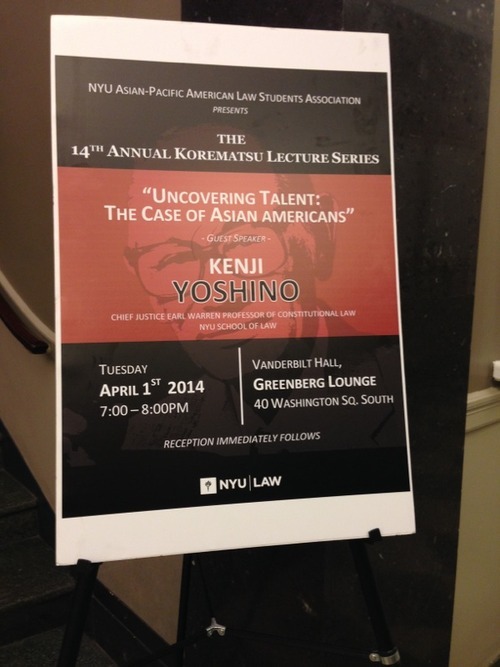
Professor Kenji Yoshino touched upon his extensive research regarding the frequency of incidence and perceived impact of covering. As opposed to “passing,” the practice of concealing a part of one’s identity in order to present as a member of the dominant major, “covering” differs in that a person who covers is unable to completely conceal that part of his or her identity so must instead downplay qualities associated with it. In Prof. Yoshino’s words, “covering” is a tax that minorities have to pay in response to a much less visible second-wave discrimination. Examining both the demand and the performance of covering, the research explores whether certain professional organizations live up to their stated values of inclusion. Asking the question of whether certain groups feel as though they must cover in order to be successful and have their successes attributed to their personal qualities rather than their race, Prof. Yoshino identified four kinds of covering: (1) appearance-based covering (e.g. a black woman straightens her hair to downplay her race), (2) affiliation-based covering that avoids behaviors associated with identity (e.g. a mother avoids talking about her children because she does not want her co-workers to believe she is less committed to work), (3) advocacy-based covering that determines how much a person ‘sticks up’ for their group (e.g. a veteran lets a military joke slide lest he or she be seen as strident), and (4) association-based covering (e.g. a gay man does not bring his partner to work functions so as not to be seen as ‘too gay’).
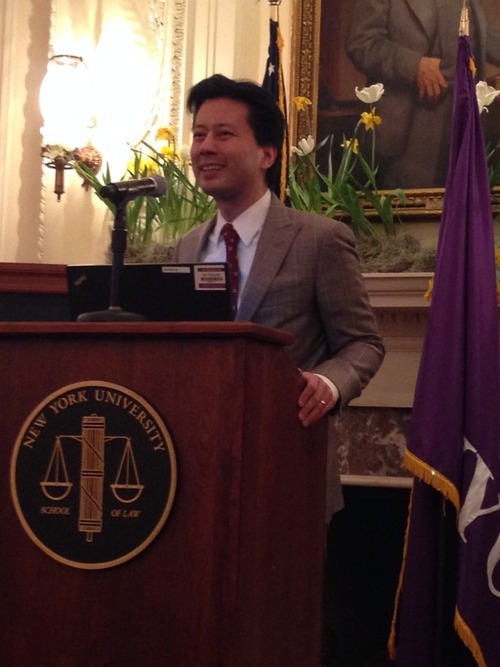
In many ways, Prof. Yoshino’s research brings together many groups who feel the need to cover their identity, including the often elevated or demonized straight white males who feel they have to cover other factors, such as their socioeconomic background or their veteran status. At the same time, his findings also reveal the differences in impact respectively felt by members of different groups. Whereas most people feel the impact of covering, racial groups feel the impact to a greater degree, with no one impacted more than women of color who must simultaneously play down both their gender and race.
Here are some of the ways you could say I am “white”:
I listen to National Public Radio.
I have few close friends “of color."
I furnish my condo a la Crate & Barrel.
I vacation in charming bed-and-breakfasts.
I have never once been the victim of blatant discrimination.
I am a member of several exclusive institutions.
I have been in the inner sanctums of political power.
I have been there as something other than an attendant.
I have the ambition to return.
I am a producer of the culture.
I expect my voice to be heard.
I speak flawless, unaccented English.
I subscribe to Foreign Affairs.
I do not mind when editorialists write in the first person plural.
I do not mind how white television casts are.
I am not too ethnic. I am wary of minority militants.
I consider myself neither in exile nor in opposition.
I am considered “a credit to my race.”– Eric Liu, The Accidental Asian: Notes of a Native Speaker
"The loudest duck gets shot,” laughed Prof. Yoshino. Underscoring a dark history of discrimination, Prof. Yoshino explained how Asian Americans occupy a liminal space in which they are seen both as “honorary whites” and perpetual foreigners. Asian Americans cover or reverse-cover in numerous ways, either feeling pressure to live up to the model minority myth or feeling pressure to perform and act in certain ways to emphasize their Asian American identity. Professional Asian women are the least likely to have children. Asian Americans cover on the issue of age, often engaging in behaviors like wearing glasses or dressing conservatively in order to appear older and more authoritative.
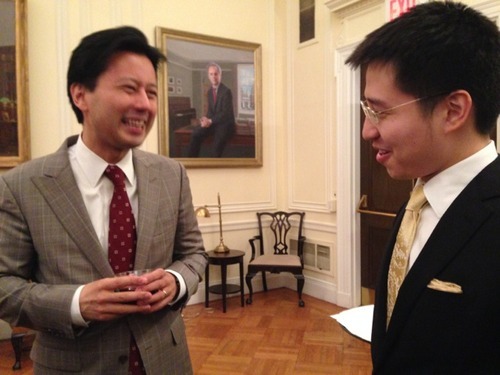
(Above: Prof. Kenji Yoshino and former student and AABANY member George Hang.)
“Covering” gives a name to the phenomenon, which gives a person the tools to self-diagnose and consciously uncover. What is called for now by Prof. Yoshino’s research is self-reflection within organizations and communities. Having leaders who do not have to downplay their identities works to dismantle the harmful associations which might lead a person of color, mother, or other marginalized person to cover.
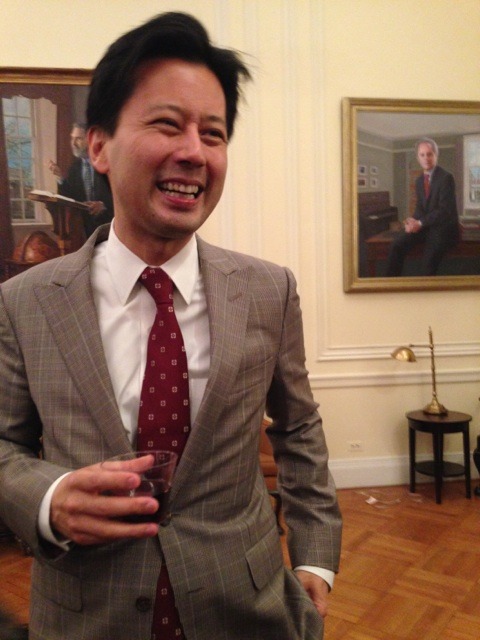
Prof. Yoshino closed with his own uncovering story: his own title, previously the “Earl Warren Professor of Constitutional Law” at NYU, had been a delicate issue in accepting his position. A Japanese American, Kenji Yoshino had been wary of taking on the title of the man who as Attorney General commissioned the internment of Japanese Americans during World War II. After much deliberation, the offer was again extended to Prof. Yoshino, appending the words “Chief Justice” – after the initial confusion, Prof. Yoshino learned that later in life as Chief Justice, Earl Warren had recanted and expressed his deep regret that he had ever done such a dishonorable action. In the spirit of the Chief Justice, Prof. Yoshino accepted the position – his research works to change perceptions and increase cultural awareness for the better, and that deeply matters, even over the course of one lifetime.
~
Special thanks to Prof. Kenji Yoshino, the NYU Asian Pacific American Law Students Association, and Hanah Kim and Ted Kim of the Korematsu Committee for continuing the tradition of education and inspiration!
From MinKwon: Immigrants’ Day of Action
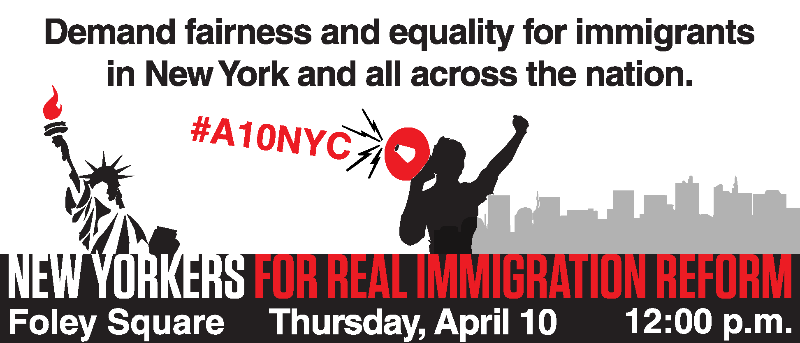
Immigrants’ Day of Action
Join MinKwon and New Yorkers for Real Immigration Reform to raise the voice of immigrants in New York City!
Date & Time: April 10, 12 p.m.
Place: Foley Square
On April 10th, we will stand united to call on lawmakers to enact policies that advance immigrant rights and services! We will start off the day with the New York Immigration Coalition and participate in legislative meetings with City Council Members to push City legislative and budget priorities. Then we will join New Yorkers for Real Immigration Reform for a rally at Foley Square to demand Congress pass federal legislation to fix our broken immigration system. Join us to call for a just and fair America for all!
Mark your calendars! RSVP with Jorim Rhee at [email protected] or 718-460-5600.
Asian/Pacific/American Institute at NYU and Asia Society’s The Escape and Rescued Memories: New York Stories
The Escape and Rescued Memories: New York Stories
Thursday–Friday, May 8-9, 2014, 8PM
by Lenora Lee Dance with Kei Lun Martial Arts & Enshin Karate, South San Francisco Dojo
Directed by A/P/A Institute at NYU Visiting Scholar Lenora Lee, the interdisciplinary performance works The Escape and Rescued Memories: New York Stories excavate the lives of early 20th century Chinese women migrants through dance, martial arts, film, and music.
The Escape is inspired by stories of women who, after being trafficked into the United States, sought refuge in San Francisco’s Donaldina Cameron House, a faith-based social service agency that today continues to serve Asian communities living in San Francisco’s Chinatown. Rescued Memories: New York Stories retraces the life of Bessie M. Lee (Bessie You Toy–b. 1894), who spent two years in indentured servitude after migrating to New York City to work for a wealthy Chinese family.
Both evenings’ performances will be followed by special conversations featuring the artists, community organizers, and scholars.
Image credit: Robert Sweeney.
La MaMa and CultureHub’s Seoul Counterpoint & Heavenly Code
Seoul Counterpoint & Heavenly Code
created & performed by DJ Spooky
visuals & installation by Culturehub
Created and performed by
Paul D. Miller aka DJ Spooky
Visual elements and installation by CultureHub
DJ Spooky’s Seoul Counterpoint
Friday – Sunday: 7:30pm
Seoul Counterpoint is an audio/visual anthropology, a breathing composition that juxtaposes the diverse landscapes, histories and sonic cultures of Seoul and New York. DJ Spooky’s unique style of “turntableism”, traditional Korean elements, and computer generated visuals by CultureHub collide in the New York premiere of the project developed during a two month residency at the Seoul Institute of the Arts.
Heavenly Code Free
April 12 / 12–4 PM
Heavenly Code is an interactive installation designed by CultureHub that is inspired by the Chun Bu Kyung. The Chun Bu Kyung is an ancient Korean text that dates back nine thousand years and can be interpreted as an exercise in mathematics, philosophy, or energy. The viewer becomes immersed in a pattern of light and darkness generated by their relationship to the 81-character system that seeks to make sense of the cosmos.
“As a world-renowned DJ, hip-hop savant, media artist, writer, and cultural critic, the work of Paul Miller, aka DJ Spooky is a process of discovery as much as it is an explosion of new forms…”
– BOMB Magazine
La MaMa continues its new ticketing initiative, 10 @ $10, through which ten $10 tickets will be available to every performance in advance via web, phone or box office. 10 @ $10 Tickets are not available day of show.
If all our $10 tickets have been booked, you can still save!
La MaMa is offering a special $5-off discount
$20 tickets for Adults
USE THE CODE: POINT
$15 tickets for Students
USE THE CODE: SPOOKY


